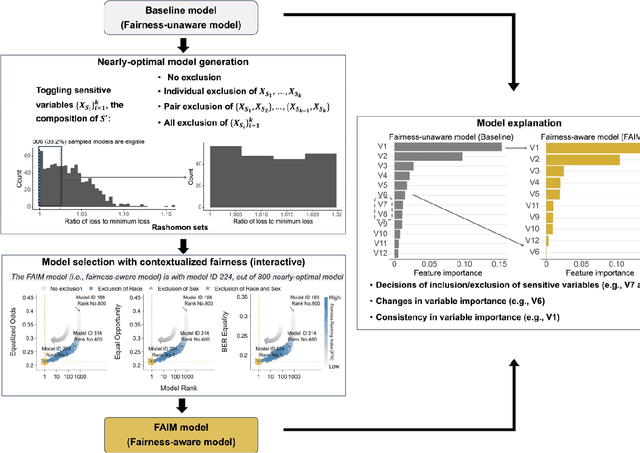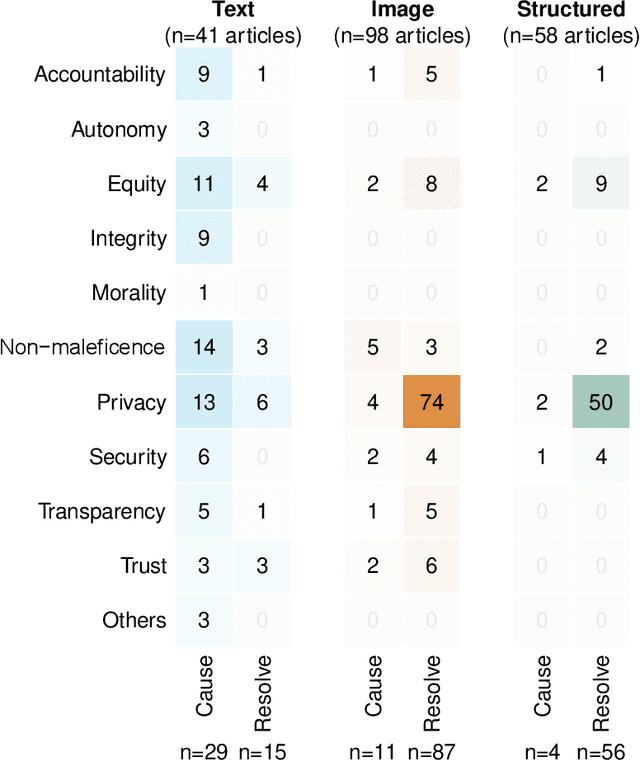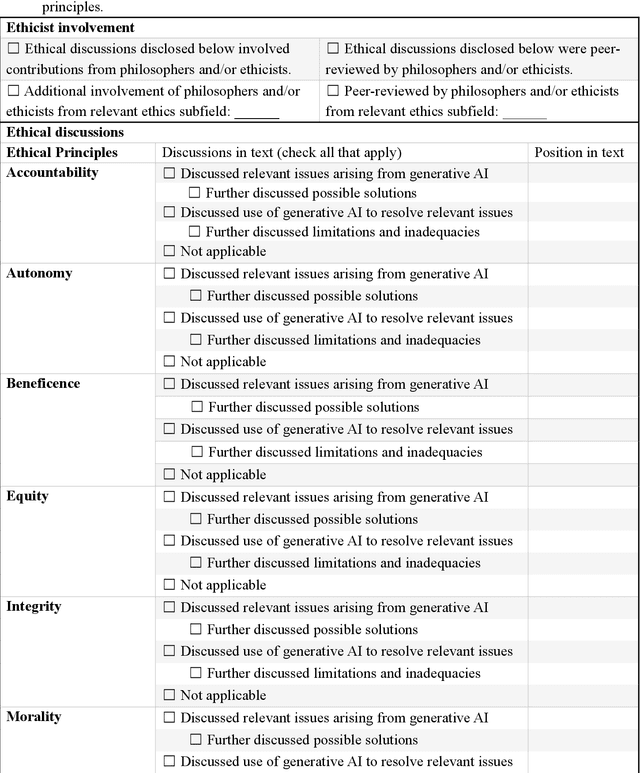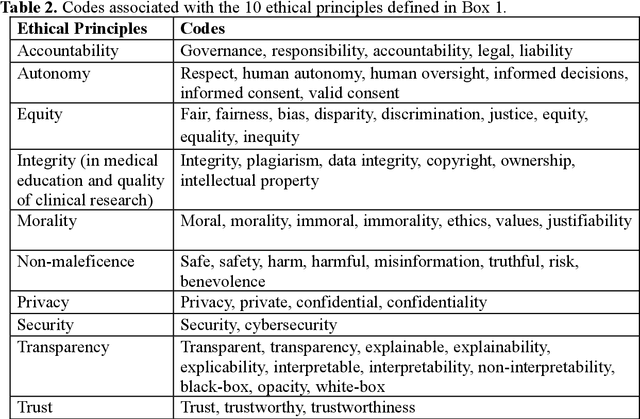Yuqing Shang
Towards Clinical AI Fairness: Filling Gaps in the Puzzle
May 28, 2024



Abstract:The ethical integration of Artificial Intelligence (AI) in healthcare necessitates addressing fairness-a concept that is highly context-specific across medical fields. Extensive studies have been conducted to expand the technical components of AI fairness, while tremendous calls for AI fairness have been raised from healthcare. Despite this, a significant disconnect persists between technical advancements and their practical clinical applications, resulting in a lack of contextualized discussion of AI fairness in clinical settings. Through a detailed evidence gap analysis, our review systematically pinpoints several deficiencies concerning both healthcare data and the provided AI fairness solutions. We highlight the scarcity of research on AI fairness in many medical domains where AI technology is increasingly utilized. Additionally, our analysis highlights a substantial reliance on group fairness, aiming to ensure equality among demographic groups from a macro healthcare system perspective; in contrast, individual fairness, focusing on equity at a more granular level, is frequently overlooked. To bridge these gaps, our review advances actionable strategies for both the healthcare and AI research communities. Beyond applying existing AI fairness methods in healthcare, we further emphasize the importance of involving healthcare professionals to refine AI fairness concepts and methods to ensure contextually relevant and ethically sound AI applications in healthcare.
Fairness-Aware Interpretable Modeling (FAIM) for Trustworthy Machine Learning in Healthcare
Mar 08, 2024



Abstract:The escalating integration of machine learning in high-stakes fields such as healthcare raises substantial concerns about model fairness. We propose an interpretable framework - Fairness-Aware Interpretable Modeling (FAIM), to improve model fairness without compromising performance, featuring an interactive interface to identify a "fairer" model from a set of high-performing models and promoting the integration of data-driven evidence and clinical expertise to enhance contextualized fairness. We demonstrated FAIM's value in reducing sex and race biases by predicting hospital admission with two real-world databases, MIMIC-IV-ED and SGH-ED. We show that for both datasets, FAIM models not only exhibited satisfactory discriminatory performance but also significantly mitigated biases as measured by well-established fairness metrics, outperforming commonly used bias-mitigation methods. Our approach demonstrates the feasibility of improving fairness without sacrificing performance and provides an a modeling mode that invites domain experts to engage, fostering a multidisciplinary effort toward tailored AI fairness.
Developing Federated Time-to-Event Scores Using Heterogeneous Real-World Survival Data
Mar 08, 2024



Abstract:Survival analysis serves as a fundamental component in numerous healthcare applications, where the determination of the time to specific events (such as the onset of a certain disease or death) for patients is crucial for clinical decision-making. Scoring systems are widely used for swift and efficient risk prediction. However, existing methods for constructing survival scores presume that data originates from a single source, posing privacy challenges in collaborations with multiple data owners. We propose a novel framework for building federated scoring systems for multi-site survival outcomes, ensuring both privacy and communication efficiency. We applied our approach to sites with heterogeneous survival data originating from emergency departments in Singapore and the United States. Additionally, we independently developed local scores at each site. In testing datasets from each participant site, our proposed federated scoring system consistently outperformed all local models, evidenced by higher integrated area under the receiver operating characteristic curve (iAUC) values, with a maximum improvement of 11.6%. Additionally, the federated score's time-dependent AUC(t) values showed advantages over local scores, exhibiting narrower confidence intervals (CIs) across most time points. The model developed through our proposed method exhibits effective performance on each local site, signifying noteworthy implications for healthcare research. Sites participating in our proposed federated scoring model training gained benefits by acquiring survival models with enhanced prediction accuracy and efficiency. This study demonstrates the effectiveness of our privacy-preserving federated survival score generation framework and its applicability to real-world heterogeneous survival data.
Federated Learning for Clinical Structured Data: A Benchmark Comparison of Engineering and Statistical Approaches
Nov 06, 2023Abstract:Federated learning (FL) has shown promising potential in safeguarding data privacy in healthcare collaborations. While the term "FL" was originally coined by the engineering community, the statistical field has also explored similar privacy-preserving algorithms. Statistical FL algorithms, however, remain considerably less recognized than their engineering counterparts. Our goal was to bridge the gap by presenting the first comprehensive comparison of FL frameworks from both engineering and statistical domains. We evaluated five FL frameworks using both simulated and real-world data. The results indicate that statistical FL algorithms yield less biased point estimates for model coefficients and offer convenient confidence interval estimations. In contrast, engineering-based methods tend to generate more accurate predictions, sometimes surpassing central pooled and statistical FL models. This study underscores the relative strengths and weaknesses of both types of methods, emphasizing the need for increased awareness and their integration in future FL applications.
Generative Artificial Intelligence in Healthcare: Ethical Considerations and Assessment Checklist
Nov 02, 2023


Abstract:The widespread use of ChatGPT and other emerging technology powered by generative artificial intelligence (AI) has drawn much attention to potential ethical issues, especially in high-stakes applications such as healthcare. However, less clear is how to resolve such issues beyond following guidelines and regulations that are still under discussion and development. On the other hand, other types of generative AI have been used to synthesize images and other types of data for research and practical purposes, which have resolved some ethical issues and exposed other ethical issues, but such technology is less often the focus of ongoing ethical discussions. Here we highlight gaps in current ethical discussions of generative AI via a systematic scoping review of relevant existing research in healthcare, and reduce the gaps by proposing an ethics checklist for comprehensive assessment and transparent documentation of ethical discussions in generative AI development. While the checklist can be readily integrated into the current peer review and publication system to enhance generative AI research, it may also be used in broader settings to disclose ethics-related considerations in generative AI-powered products (or real-life applications of such products) to help users establish reasonable trust in their capabilities.
 Add to Chrome
Add to Chrome Add to Firefox
Add to Firefox Add to Edge
Add to Edge